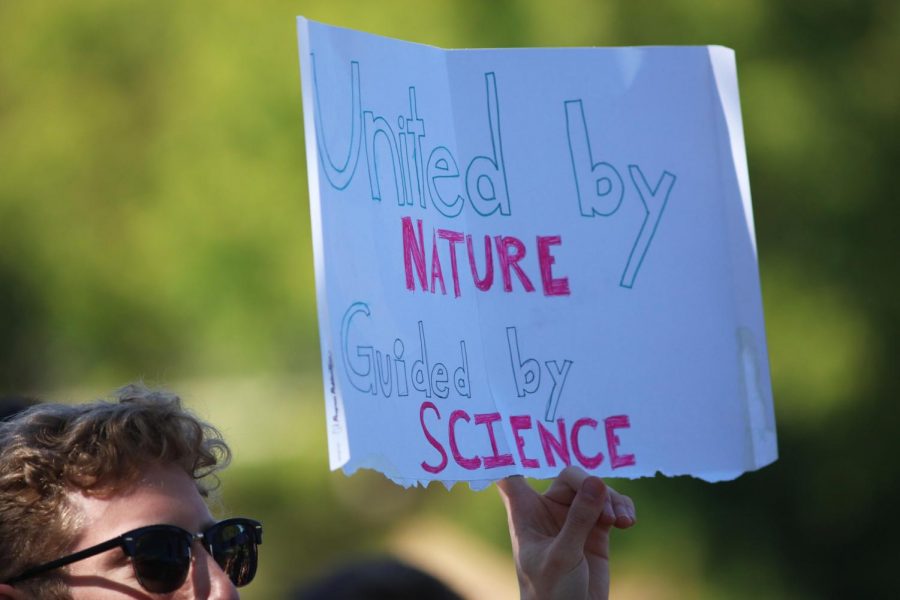Climate change is becoming an increasingly partisan issue. As progressive politicians like Alexandria Ocasio-Cortez and Bernie Sanders push more ambitious climate change policies, conservatives are ever more wary of their far-reaching economic and political effects. Conservatives have a point: some on the hard left have admitted that they want to use climate change as a springboard to undermine capitalism. I don’t mean to excuse conservatives who think climate change is a hoax perpetrated by the Chinese government, I merely seek to explain why we on the right distrust the most radical contingents of environmentalism.
When Washington Governor Jay Inslee was running for president on a climate change-specific agenda, Ocasio-Cortez’s former chief of staff Saikat Chakrabarti met with Inslee’s campaign climate director. During this meeting, Chakrabarti made an astounding proclamation: “The interesting thing about the Green New Deal…is it wasn’t originally a climate thing at all.” He later said, “we really think of it as a how-do-you-change-the-entire-economy thing.” You may think this is cherry-picking the thoughts of rogue political operatives and that Chakrabarti only speaks for himself. However, the Sierra Club, a leading environmental interest group, stated that “a Green New Deal…would mobilize vast public resources to help us transition from an economy built on exploitationand fossil fuels to one driven by dignified work and clean energy.” The Sierra Club used explicitly Marxist language by using words like “exploitation” to discuss climate change. Why wouldn’t conservatives be skeptical of environmentalists’ motives?
You might expect the hard left to support decreasing carbon emissions any way possible. One such way is nuclear energy, a marvel in electricity production, which can produce power without emitting carbon. However, some climate change activists are adamantly opposed to nuclear energy. Bernie Sanders, due to fear of nuclear reactor meltdowns, supports closing down existing nuclear power plants. Nuclear power is actually pretty safe, despite public fear of the dangers of meltdowns. Bernie is not stupid; he likely knows how safe nuclear power is. Thus, conservatives are left speculating as to whether he is sincere in his environmentalist motives.
Conservatives are generally opposed to government intervention, which is why we distrust the left’s version of interventionist environmentalism. Government involvement in climate change prevention will cause unintended consequences that the government will further have to deal with. The logic goes something like this: the government bans fossil fuels to reduce carbon emissions. This reduces the supply of energy. When this happens, prices of energy go up. Lower-income people now have a harder time affording electricity; indeed, some can’t afford it at all. The government recognizes this imbalance and can do one of three things: they can recall the ban on fossil fuels, thereby reintroducing the original problem of carbon emissions; they can keep the ban and do nothing about affordability; or they can intervene by freezing the price of fuel at a certain price or give people money to buy it. The government would likely do the latter; in an era of continually increased calls for government intervention, it would seem inhumane for people to be left to their own devices in this situation. You can begin to see why conservatives, who want smaller government, don’t like the prospect of an ever-increasing involvement by a state which attempts to correct its unintended consequences.
Consider the Yellow Vest protests in France: in 2018, French President Emmanuel Macron imposed a tax on fuel that increased the price of fuel overnight. As a result, gas became more expensive. Rural commuters were suddenly unable to afford fuel for their cars, leading to mass protests. There could happen in the United States if the government were to increase fuel prices.
Like I said, I’m not trying to make excuses for climate change deniers. In fact, I think there are many sensible compromise reforms that could help us fight climate change without resorting to massive government takeovers of entire industries. For instance, I listened to a Vox podcast recently about how vital nuclear energy is for a reduced-carbon future and was struck by how much I agreed with the progressive host on the issue.
Climate change can be fought without forcing us to give up our way of life. I understand that many people have no interest in compromising on climate change, but I would suggest that if you want anything to be done about it, you shouldn’t advocate for an end to capitalism.
Greg Fournier is a Collegian columnist and can be reached at [email protected] and followed on Twitter @greg_fournier.



















Ed Cutting, Ed.D. • Mar 5, 2020 at 10:41 am
It’s also that the environmentalists keep being wrong.
.
First it was “Global Cooling” and “The Coming Ice Age.”
.
Then it was “Global Warming.”
.
Now it is “Climate Change.”
.
And next year it will be?????
.
Call me a Luddite, but when you’re wrong this many times inside of 40 years, well how many times do you have to cry “wolf” before no one believes you anymore? And science not only can be but HAS been tragically wrong in the past — Google “Thalidomide Babies” for just one tragic example….